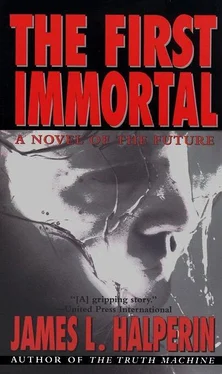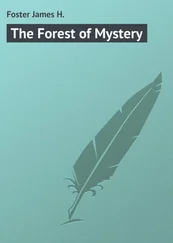April 12, 1945
The POW camp had no name; in Japanese culture, to name a place was to honor it. The allied prisoners at Futtsu came to refer to it as Purgatory, yet compared to the Asahi Mara , the camp was almost decent.
“Good morning, Smee-tee-san.”
Ben bowed and offered the austere young colonel a polite and equally mispronounced answer to his strained English greeting. “ O hiyo gozaiymas , Yamatsuo-sama.”
As they seated themselves, Hiro Yamatsuo’s face remained expressionless, but Ben imagined the colonel had just winced with his eyes. “Smee-tee-san,” he said, “we will please use English. I fear we Japanese will—how do you say?—find it of use soon.”
This was Ben Smith’s seventh “interview” in the twenty-one months since his compulsory audience under the supervision of Futtsu’s ranking officer. No other prisoner except the camp’s ranking allied officer, Colonel Lawrence Rand, and of course Epstein, to voice his almost-daily complaints, had met with Yamatsuo so many times. In their first encounter, this same man had savagely used every psychological weapon short of physical torture to press Ben into providing whatever information he had. Even though Ben felt his knowledge would be of minimal value, he had refused to say anything. But he’d continued to treat his captors with appropriate and consistent respect.
Since that first meeting, these interviews had become increasingly and inexplicably pleasant. Now that so much time had passed since his capture, Ben could only surmise that the officer simply liked him.
He also found himself appreciating the subtle duality contained in so much of what Yamatsuo said and did. The deference he exhibited by insisting on “Engrish” was closely coupled with a pragmatic explanation of why this might be beneficial: a conspiratorial yet seemingly guileless admission that the Japanese were losing.
But while he considered this Japanese taisa now treating him with such cordiality, a jumpy Moviola danced inside his forehead. The stop-start action was not unlike the images viewed through a hand-cranked nickelodeon, yet the stutterings and lack of color somehow made the impressions all the more real:
It is the day after their ragtag company—the survivors, anyway-disembarked from the floating sewer. The office is the same as Ben and Yamatsuo occupy now, but instead of being comfortably seated on a futon, Ben stands at the open door, facing inward, next in line for interrogation.
Before him a nearly catatonic “Little Sparks” Grogan, seaman first class and second level radio operator, sits in something that looks much like a deck chair from a western-style cruise ship. His forearms are bound to the side rails with heavy twine. Taisa Yamatsuo sits to his front in a similar chair. Beside Little Sparks stands Socho (Sergeant Major) Teshio, ominously holding a pair of needle-nosed pliers.
This taisa , this colonel now pouring tea for Ben, barks interrogatories to the socho , who repeats them to Grogan in broken English. But the seaman comports himself well. His replies are a continuing monologue of name, rank, and serial number.
Teshio looks to Grogan, then to his taisa, who nods his head with an abrupt snap. The sergeant wheels instantly upon the bound sailor, grasps the index fingernail on Grogan’s hand with the pointed-end pincers, and in a single, shockingly quick motion, jerks it from the boy’s hand.
Grogan’s scream is like no other sound Ben has ever heard before.
Holy mother of God! Ben refuses to even consider the possibility that he himself might be next in line for such treatment. Is it because Little Sparks is the only radioman who survived the sinking? Do they think his position made him privy to special information? Or are they using Grogan to strike fear into the rest of them?
Whatever their reasons, the Japs don’t stop. It takes twelve minutes for the sailor to lose all ten fingernails. Ben vomits twice. The screams, the hopeless agony, and the courage Grogan shows despite his anguish, fill Ben with a hatred he’d never suspected possible within himself. For the next three nights he will dream of nothing but strangling Yamatsuo. This dream is not a nightmare.
The hate might have faded over time, except for one thing: Little Sparks had died from a secondary infection six days later, and Ben’s loathing for his present host had planted deep roots in hard clay.
“ Domo , Yamatsuo-sama,” he said, forcing a polite smile.
“ Hiro-san ,” the colonel corrected. “It will soon be inappropriate—is that the word?—to address me as a superior.”
Ben made no immediate reply. What the hell could he say? Finally, ignoring the implications of the question’s context, he responded, “Yes. As I believe you meant it, ‘inappropriate’ is the correct word choice.”
Both men sat in motionless silence for several seconds, each waiting for the other to offer the next disclosure.
Yamatsuo handed him a tattered photograph of a young Japanese woman standing next to an American who looked vaguely like Ben; a little shorter perhaps, but the resemblance readily apparent. “My niece, Hatsu,” Yamatsuo said, “my older brother’s daughter. And that’s her fiancé. Last time I saw Hatsu, she was nine years old, and even this picture is from 1941. Of course I have never met him.”
“Of course.” Aha! Ben thought. Maybe the prick treated him differently because he looked like Yamatsuo’s nephew-to-be.
“Her future-husband fights Germans in Italy, I imagine, while she waits, along with the rest of my brother’s family, in Arizona. At one of your internment camps.”
“I see.”
Yamatsuo poured o cha, a translucent greenish-brown tea, into tiny earthenware cups. He presented a cup to Ben, and then, as if in response to an unuttered, mordant joke, he asked, “How will it be for me, Smee-tee-san? What will you Americans do to officers of such a place as this?”
Interesting. The bastard was assuming the Americans would be after revenge. A small portion of Ben’s mind danced in ravenous anticipation of meting out retribution to his tormentor; perhaps driving him to suicide by wielding the weapon of dishonor: Yeah Hiro-san, you evil cocksucker The allies’ll probably march you naked through the streets of Tokyo, before they tear you limb from limb. But as Ben considered the notion, he realized that he could never, must never, utter such words.
Still, Yamatsuo must have glimpsed something terrible, even wolfish, as it flashed behind the young sailor’s eyes. He stiffened. “Perhaps it will be more honorable for me to commit seppuku. Life without dignity is no life. Is it not better to know one’s time of dying rather than to wait for it? As you Americans say, you can’t live forever…”
At that moment, Ben no longer saw Yamatsuo as his foe but, for the first time, as a pathetic fellow human being.
Every act of kindness or spite was like a boulder pitched into an endless sea. The ripples dispersed and widened. Forever.
He looked deeply into Yamatsuo’s steel-gray eyes. “I’ve never said that. I know of nothing more precious than life, Hiro-san . To my mind, it is always too soon to die.” It was the most honest statement he’d ever made to the man. Ben was surprised, but only mildly, by the conviction behind his own words.
August 16, 1945
Ben crouched so he could speak to the sailor writhing in pain on the sticky, septic floor. Before treating symptoms, he had to address the boy’s fear. “Dysentery,” Ben said, his voice calm with a soothingly detached sympathy, “but not too bad, I think. Bobby, I know you feel god-awful, but I promise you’re gonna be okay. Just keep drinking this. A small sip every five minutes or so. If you drink it too fast, it’ll make your diarrhea worse, and if you don’t drink enough, you’ll dehydrate.”
Читать дальше












